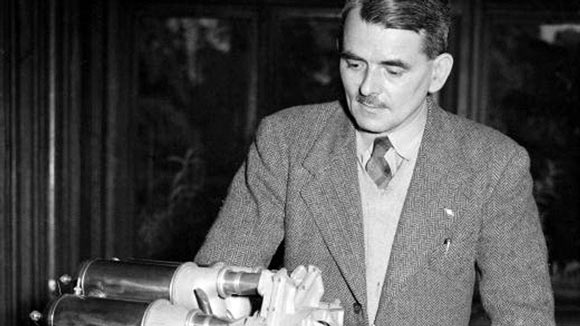Frank Whittle invented “Jet engine”
Sir Frank Whittle was a British pilot, aviation engineer and inventor of the 20th century who is best known for the invention of the jet engine. He was born in 1907 to a working class family; his father was a mechanic and inventor. Whittle was determined to join the Royal Air Force (RAF), but his first two attempts at admission were rejected due to his lack of height. After a vigorous program of diet and exercise, he managed to increase his height by three inches and enhance his built and was accepted as an apprentice on the third attempt. He began his training in 1923 and by 1928, he had become a pilot officer in a fighter squadron.
During his time at the RAF, Whittle was known to be a daring pilot who performed stunts such as “flick roll” – this was his own trick where he would bring the plane so close to the ground that the wheels would spin. This desire to fly faster led him to wonder how the speed and range of flying could be increased. During his apprenticeship, he wrote a remarkable thesis on jet propulsion which was way ahead of the times. It was titled “Future Developments in Airplane Design”. He suggested that for planes to fly further and at higher speeds, it was necessary to achieve higher altitudes as the air resistance was lower at greater heights. The piston engine technology being used at that time was insufficient for this task, so Whittle suggested that it was necessary to develop rocket propulsion or gas turbines to do so. He presented his thesis at the RAF in 1928, but failed to receive any support from either the government or the aviation industry.
Unfazed by this lack of support, Whittle started conducting research on his own and patented the idea in 1930. He made no secret of his research and the details of his patent were available for public viewing. Frank Whittle even took an engineering course and kept working on his plans for development of a jet engine. However, he began to lose hope as when the patent came up for renewal in 1935, he let it expire by not paying the £5 renewal fee. His plans finally came to action when he received support from two ex-RAF pilots who helped him with funding. They formed a company by the name of “Power Jets” and convinced the government to provide financial support, especially as this was a time of war and jet engine powered planes would serve a vital purpose.
The British government finally stepped up to the task and provided some funding, but they required that Whittle conduct all his research and work in secret. This made it difficult for the company to find additional financial support ; however, they kept at it and the first test engine was ready by 1937. He had limited success in the beginning but by 1941, Whittle’s first jet powered plane had successfully flown for 43 minutes. The government was now fully sold on the idea and Whittle received all the support he needed; they even took over Power Jets in 1944.
Whittle retired from the force in 1948 and was knighted in the same year. The government even granted him a £100,000 in tax free money as a token of acknowledgment, but in Whittle’s eyes it could not make up for the struggles he had to face earlier and he chose to migrate to the United States shortly afterwards. There he worked as a research professor at the US Naval Academy and lived out the rest of his days. Whittle published a book called “Jet: The Story of a Pioneer” in 1953 and was awarded the Order of merit in 1986. The “Sir Frank Whittle Medal” is an engineering award given in his honor. Sir Frank Whittle died in 1996 in the US, and his ashes were flown back to England upon his death.
